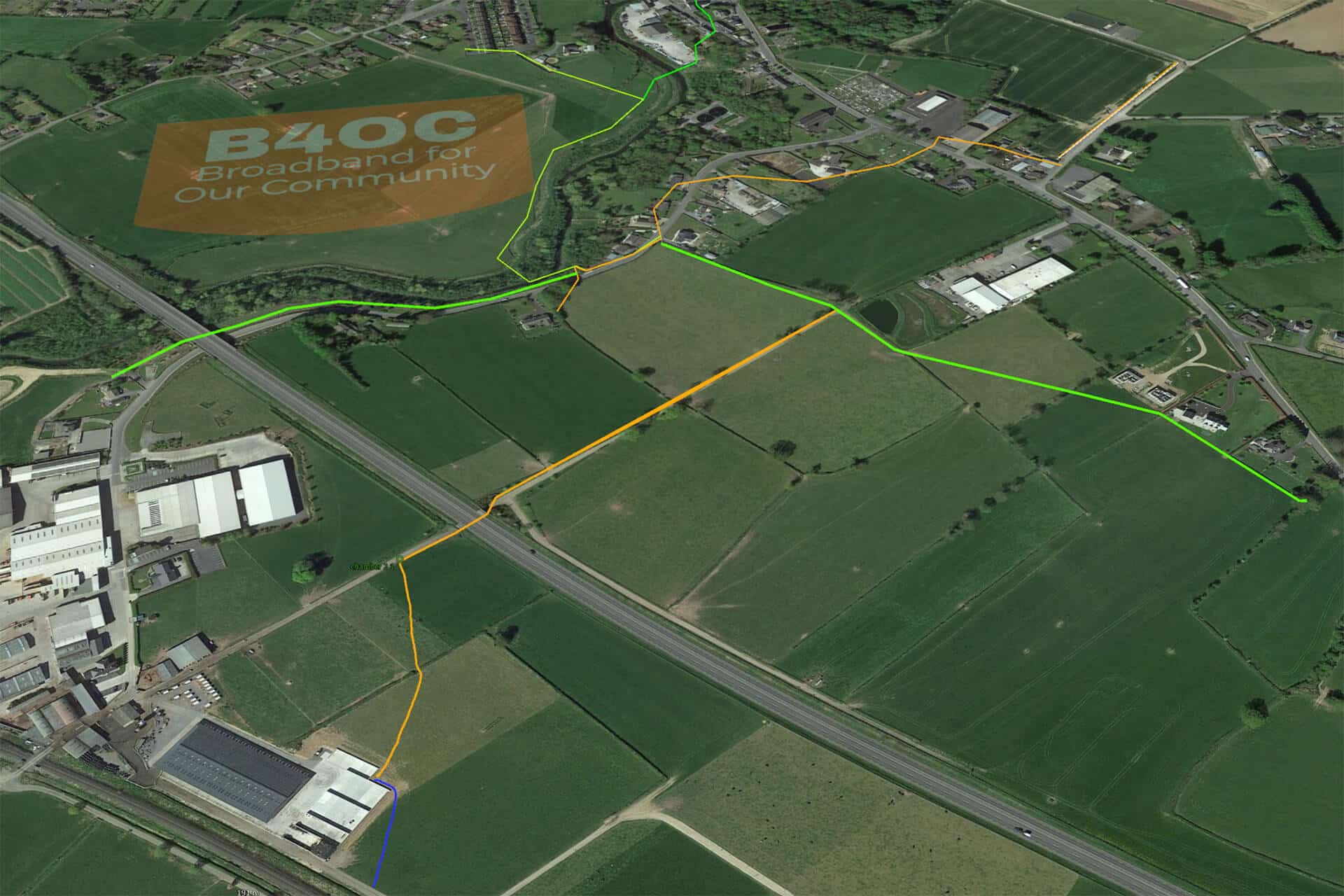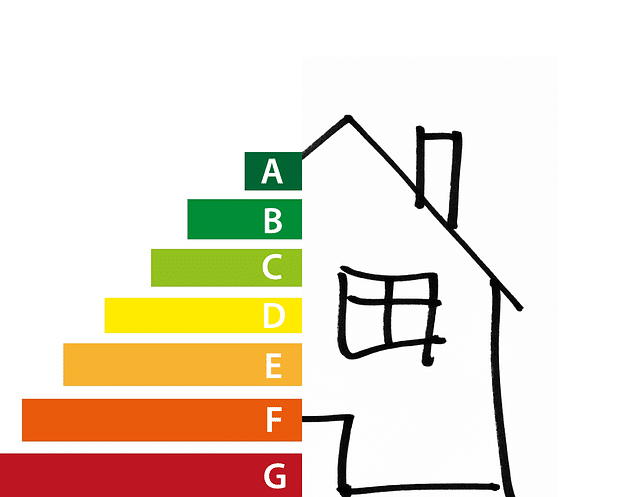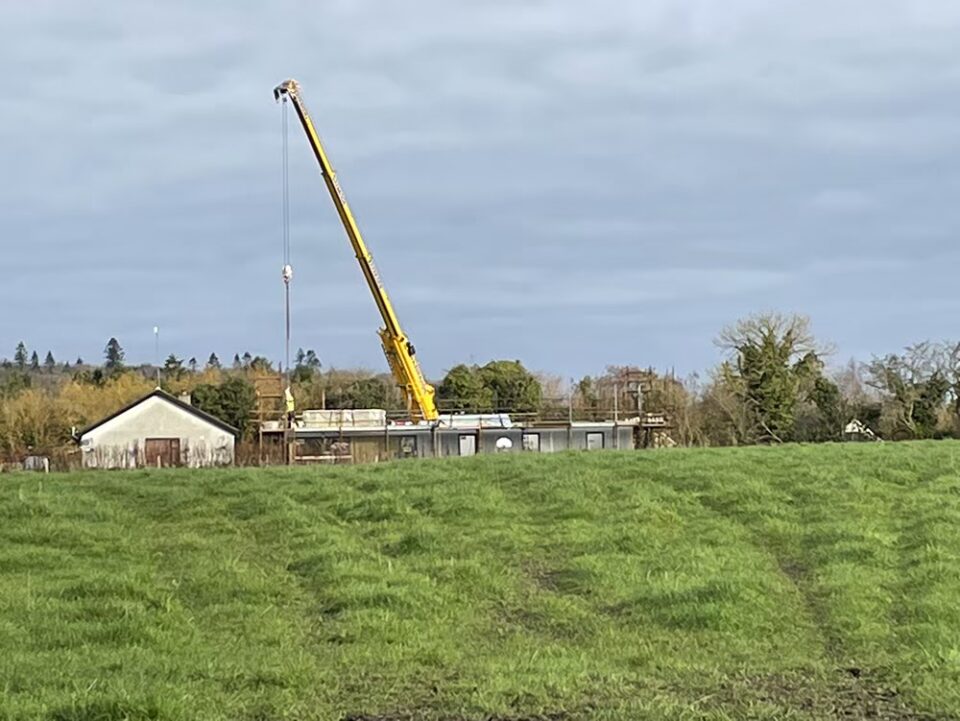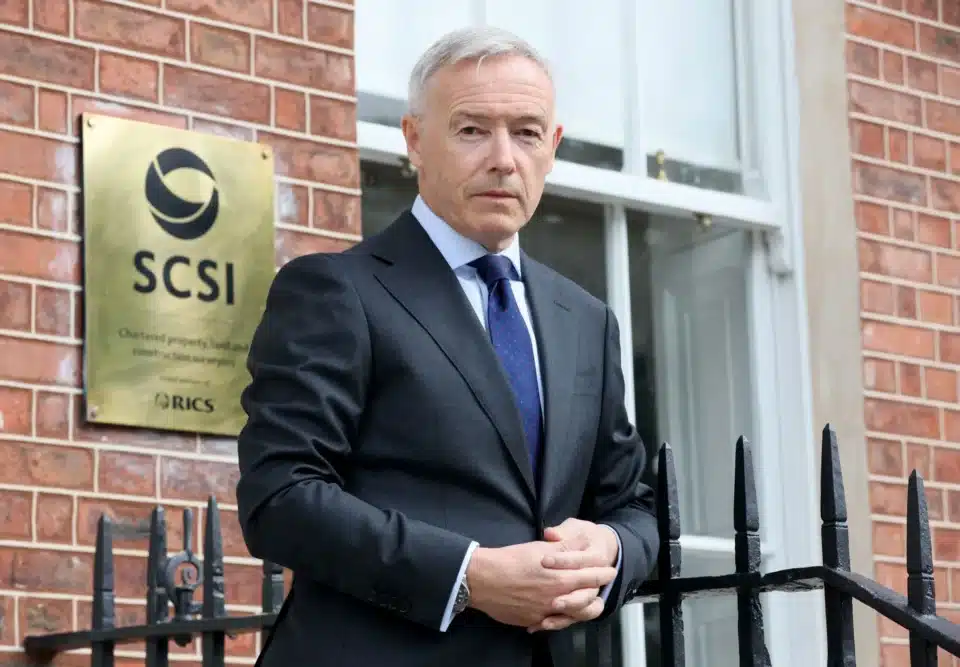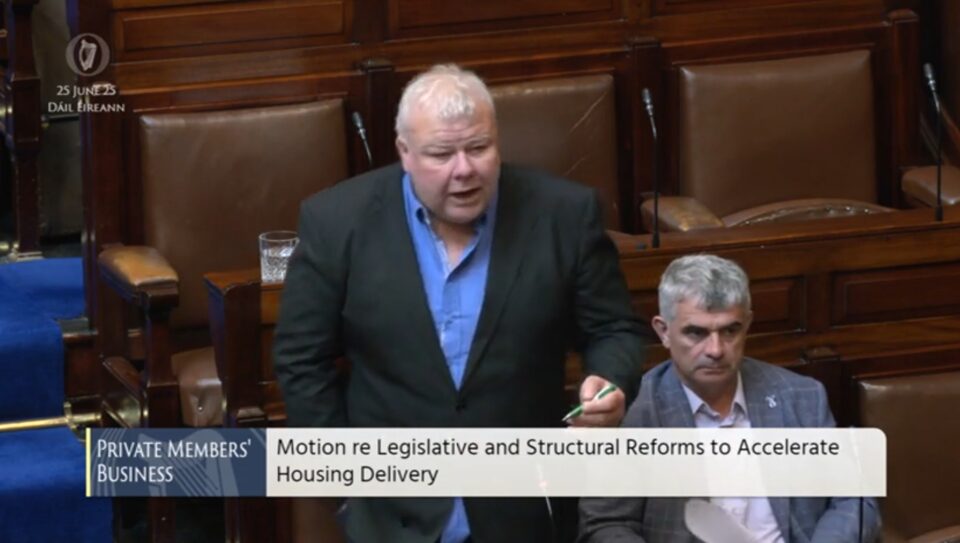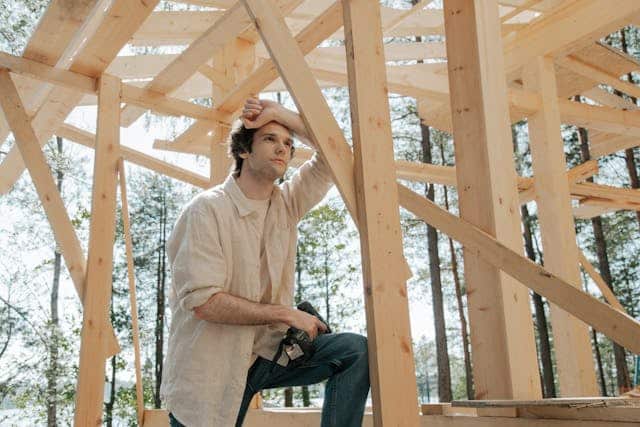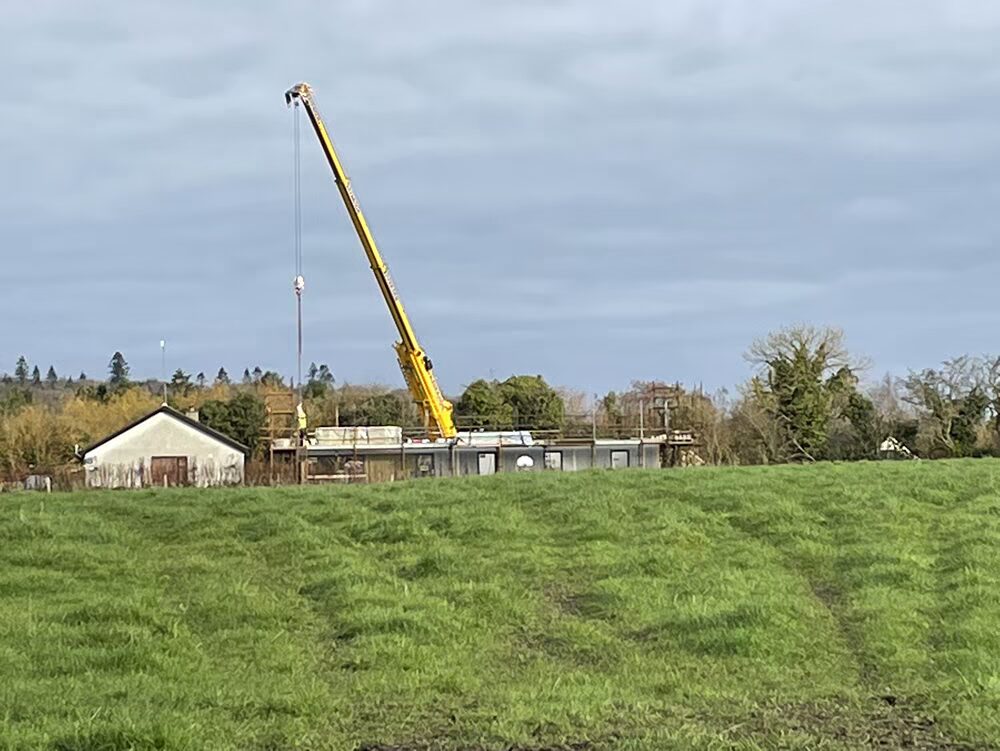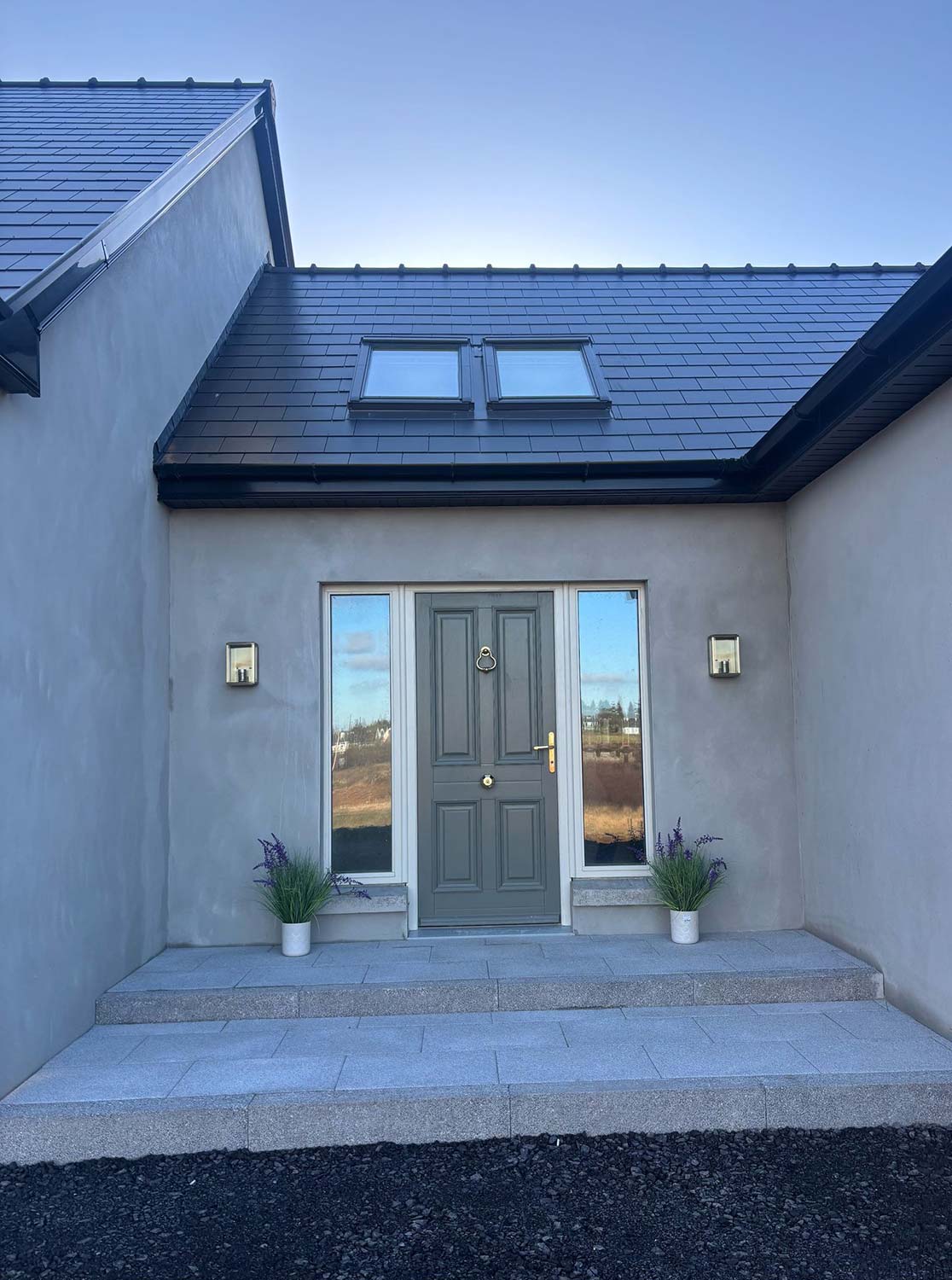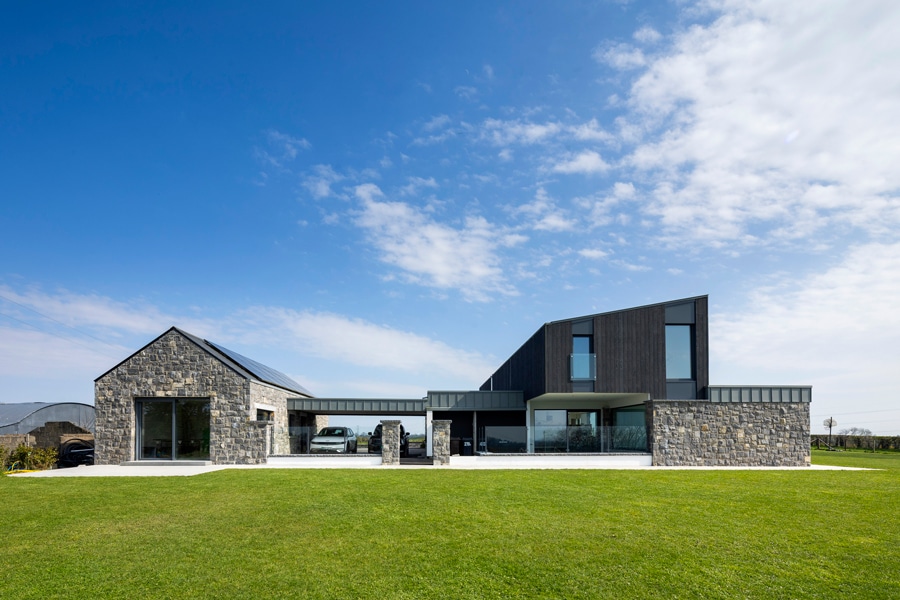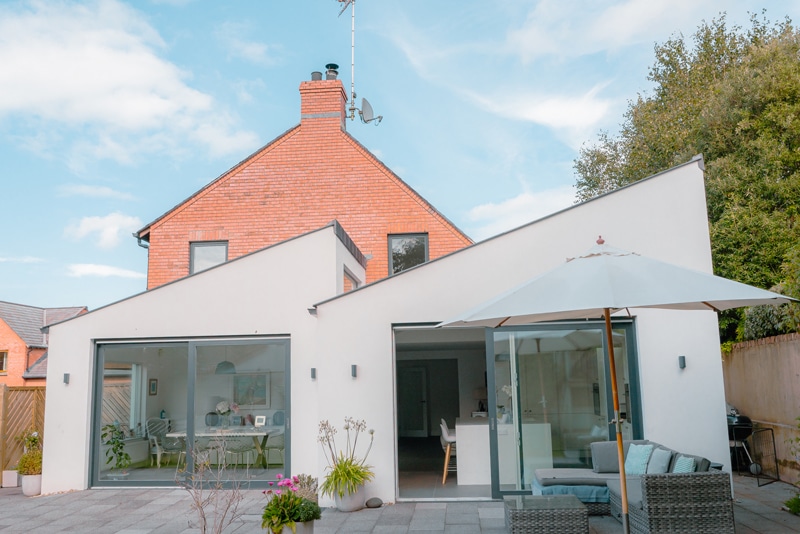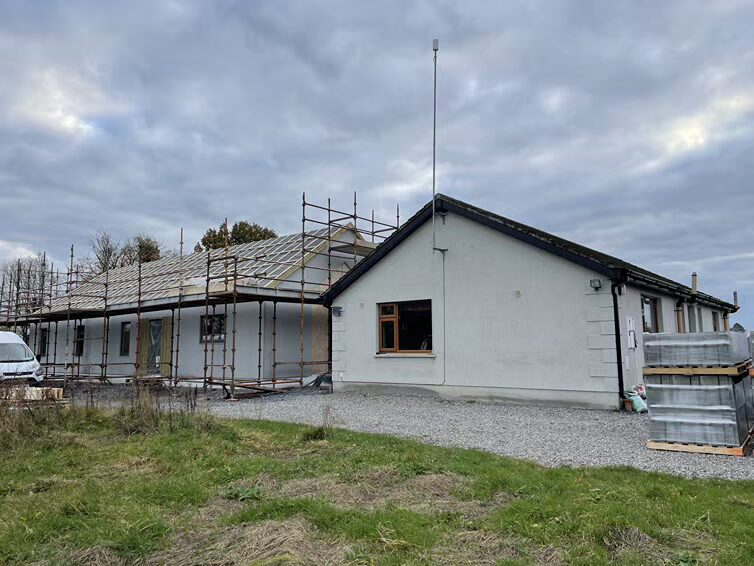Over the years, communities across Ireland have built renewable energy farms to benefit from green electricity and lower energy bills.
They’ve set up group water schemes, mini wastewater treatment plants that serve communities that aren’t on the wastewater network.
And as of February 2022, they’ve even clubbed together to build localised broadband networks.
Piltown and Fiddown, representing a total of 750 homes and businesses in a 3.4 sqkm area, did not qualify for the national rural broadband rollout currently underway because the plan classified their area as already having adequate broadband.
But in some cases speeds were as low as 1MB to 6MB, barely enough to send an email.
They needed more bandwidth. Especially because the Covid pandemic kept everyone at home. Businesses started selling online, others needed to videoconference, and many more wanted to stream content online.
‘Not rocket science’
The non profit Broadband 4 Our Community (B4OC) group spearheaded the project, alongside technical and planning assistance from the Kilkenny Leader Partnership (KLP) and its funding partner, the Tomar Trust.
Through funding from the trust, the Piltown Community Enterprise started by establishing a committee to investigate the viability of a Fibre To The Premises (FTTP) project.
Then with financial support from local businesses and the wider community a group of local volunteers did all of the work themselves, recently completing the first phase of the project.
“Installing FTTP networks is not rocket science, in many ways it’s easier than installing a group water scheme,” Declan Rice of KLP told agriland.ie.
B4OC project manager Jim O’Brien said: “My own father-in-law is a retired fitter and he has been out in the trenches and up poles with me as we built the infrastructure – all of this has been built on private lands and sits into the landscape.”
“This is a service by the community, for the community which is owned by the community and run in its interest,” B4OC chairman Brian Doyle said. “It is a much leaner development model.”
Doyle said the project hopes to pay a community dividend, which would be used to finance other community projects.
Community service
According to its website, the B4OC fibre cable will run in a loop around Piltown and Fiddown through underground and overground ducting on a network of privately owned telecom poles on private lands. Terraced dwellings will have the cable run along fascias.
The non profit is charging a flat monthly fee of no more than €39.99 for the first two years. Once the project has been paid for, the price will go down for everyone. Residents will have to pay upfront to allow connection to their home or business.
The cost per house will be subsidised by B4OC and cost no more than €100. The subscription comes with a free voice over internet protocol telephone line, see betterbroadbandforpiltown.com

